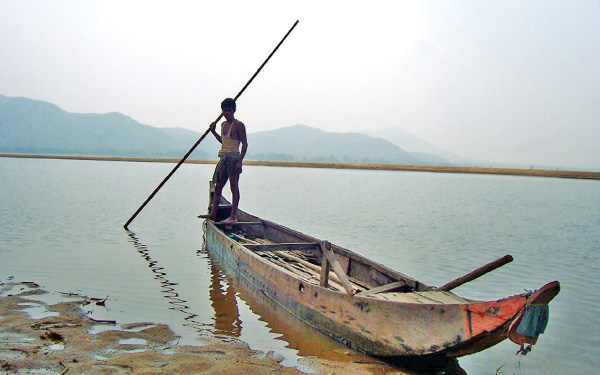There are days, even moments, when something, a word or incident, takes one to a place left behind long ago and people who colored or shaded the particular location. This is such a morning.
A friend had a song to share. It moved him and so he shared the song, the lyrics and the name of the artist. Shelton Perera’s Egodaha Yanno (Those who go — or want to go — beyond, i.e. to ‘the other shore’) was the subject. Dalton Alwis the lyricist. And the comment came out in staccato, much like the percussionist that Shelton Perera was but is not known for being: ‘So beautiful. Totally underrated singer. Please write about him. He was just 47 when he died in 1986.’
This was preceded by an observation: ‘Shouldn’t this (Egodaha Yanno) be considered as one of our all time great songs? But people hardly talk about it. If it was sung by Amaradeva they would have called it a classic! It seems most people tend to judge songs by the fashionability of the artist rather than the song. It may be common to other fields of art and literature as well. Fashionability of the artist coming before the quality of the work. One should judge the quality of a work not by the artist but by the work itself.’
I am not a connoisseur. I cannot compare and contrast. All I know is that it is certainly a beautiful song. The lyrics are amazing and the rendition exquisite. So my response was brief ‘it’s about the aging Buddha, apparently.’
This I got from a television show featuring Shelton’s son Satheesh. Dalton’s son who was also on the show recalled how his father had explained the lyrics to Shelton. The Buddha was in a sense a thotiya, a boatsman, who took people across a river to, let’s say, a shore of comprehension.
I met Shelton once at the Arts Centre Club following a concert featuring Ustad Podiappuhamy. The Ustad, a genius and according to many equal to or even better than the likes of Ravi Shankar, was accompanied on the tabla by Shelton. There was a duel and Shelton bested the Ustad who was drunk and arrogant that night. I remember his brief comment to my father: ‘He asked for it Gamini.’
Shelton died young. So did Satheesh, who I had never met. It’s Satheesh’s rendition of Egodaha yanno that I remembered.
And Satheesh
you were so much like your father
spirited but not in-your-face
nor mine,
and your heart-timbre
was voice
in the long-breathed drag
wavering as the waves
of the great oceanic wilderness
that is also refuge
wavering in the less tempestuous flow
and the egoda-megoda
of life
in a boat that has now crossed
leaving cadence and echo;
haunts, brother.
Crossings. A recent post by my friend who calls himself Kolonnawe Silibiris ‘popped up.’
‘Anura, so long our friend. May your journey through Sansara be short. Wait for us at the gate. We won’t be far behind,’ he wrote and added a poem with ended thus:
I watch the sunset from the departure lounge
Awaiting the inevitable call
Any conversation about Shelton Perera reminds me of Ananda Thilak Bandara, a singer himself, who, after ‘auditioning’ me, wryly commended (in Sinhala), ‘you can do it….for even Shelton Perera couldn’t when he began.’ Shelton could, but he was better known as an exceptional percussionist. His songs are few and each of them memorable for many reasons.
Thilak came to mind and with him a song penned by Ven Pallegama Hemarathana Thera which he sang at his maiden and only one-man concert, ‘Vihinsana (Extreme Cruelty),’ held in late 1991 at the Peradeniya University Gymnasium. Gunadasa Kapuge, being a song short for his album ‘Kalpana’ later requested it from Thilak.
It was about a young man detained and tortured in the late eighties. It’s the song of a man who had got ‘the inevitable call’ as he waited in the departure lounge which, physically, was a cell. He was about to go to that ‘beyond’ to which Shelton had gone and Satheesh would go to 21 years later. This line came to me: ‘daetha paa vijaya taemba yadina maa mithurane…baethi pemin numba dakimi maranaye kavluven (my dear friends whose hands and feet yearn for the winning post…I see you with loving affection from death’s window.’
These ‘beyonds,’ if you will, are obviously lesser shores than that alluded to by Dalton Alwis. There are boatmen who carry us some distance and then there’s one who has taught us to navigate sansaric waters. We step from vessel to vessel, like I stepped from one conversation to another, a moment to several moments from a long time ago, song to song.
It’s as though we are awaiting calls but are not given to listening and therefore do not hear. We don’t even know that we are in a departure lounge, which of course means we can, if we want, leave. Wrong departure lounges, wrong exits, wrong flights and wrong destinations abound.
‘Pamaa novanne…andura vaetenne…yanavaanam..enne…’. [It’s late evening. Do not tarry. If you want to go, come.]
There’s such compassion and wisdom in these lines. Dalton, Shelton, Satheesh and Ustad Podiappuhamy have passed on. Where they are, what they do, we do not know. What they left behind are canoes that take us to better lands. Good enough for now, Kolonnawe Silibiris would agree.



Add new comment